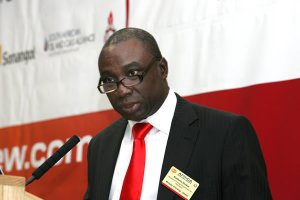Policy think tank, IMANI Ghana, has noted with concern that the rampant power crisis being experienced in the country is primarily a “self-imposed one.”
A statement signed and issued by the founding President of IMANI Ghana, Mr. Franklin Cudjoe, and copied to Today in Accra, said the country is presently shedding load in the range of 90 to 300 megawatts (MW) on a daily basis as a result of a deficit in power generation.
The statement was to announce to the general public the IMANI Ghana, ELBA Event and ACEP intention to host a forum on energy crisis at the Christ the King Catholic Church, Accra on Wednesday, December 17, 2014.
The event—which would be jointly organised by the three civil society groups—will bring together energy experts, consumers and providers to discuss the way out of the country's energy predicament.
"According to the Electricity Company of Ghana (ECG,) factories will lose power for 48 hours and have continuous supply for six (6) days. The negative impact on economic growth, productivity, in the manufacturing sector, especially will be notable," he stated in the statement.
Mr. Cudjoe asserted that Ghana has had to halve its economic growth forecast for 2015 partly due to the chronic power outages that are hurting investor confidence in the economy.
On the consumer end of the chain, he noted that government, and state agencies are indebted to ECG to the tune of GHC1.2 billion which results in cash flow difficulties for the distribution company.
That, according to Mr. Cudjoe, threatens the viability and sustainability of the corporation, and a major stumbling block to key investments required to improve efficiency.
He said without these efficiency gains, ECG is unable to mobilise the necessary capital for power purchase.
Furthermore, the challenges with ECG are a barrier to private investment in the generation sector, which is crucial for narrowing the energy generation deficit.
He contended that companies within the mining sector have agreed to significant percentile reductions in power supply from the national grid.
This development, he stressed, will exacerbate an already precarious situation within the sector, as companies grapple with record low gold prices amidst higher production costs.
Small businesses are especially hard hit by developments in the energy sector, the statement added. Mr. Cudjoe mentioned that mechanics, hairdressers, small scale manufacturers and traders all depend on reliable supply of power to run their businesses profitably.
He averred that this will inevitably lead to further job cuts, lower corporate taxes, reduced foreign exchange receipts and considerably lower contribution of the sector to the country’s Gross Domestic Product (GDP).
He recounted that most recently, a major player in the telecoms industry lamented its rising cost of operations due to the prolonged load-shedding exercise.
He fumed that this is worryingly the view shared by major commercial and industrial sector players. The situation will be worsened with a 17.5 % tax on petroleum products.
He pointed out that solving the energy crisis required the highest priority given the damaging cost it poses to the growth of Ghana’s economy.
It is yet to be seen if the government’s promise of delivering 5,000 megawatts (MW) of power by 2016 will be achieved.
General News of Thursday, 11 December 2014
Source: Today Newspaper













